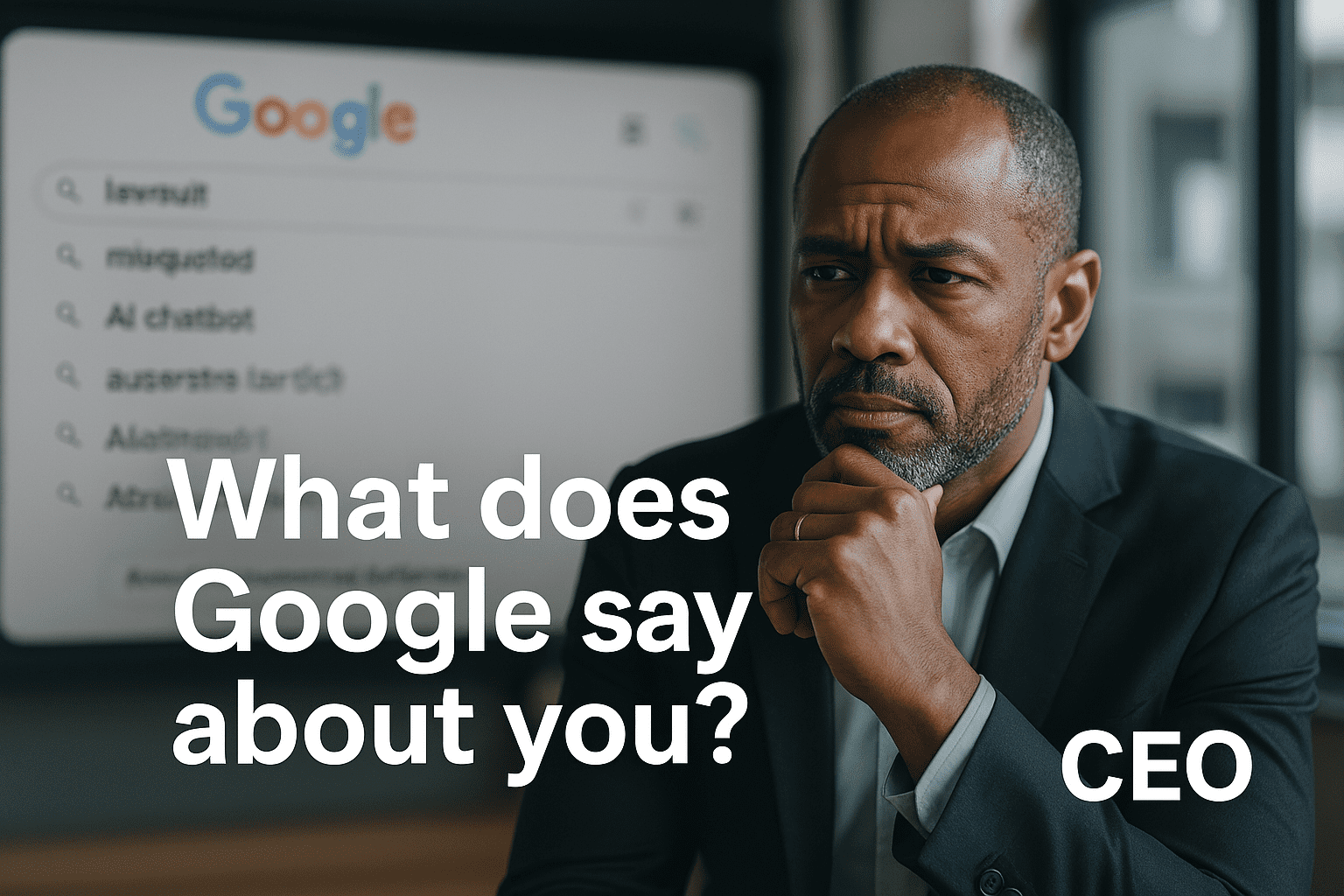Last Updated on April 4, 2025 by Steven W. Giovinco
Let’s be honest—no one talks enough about how bad it feels when your name shows up online for the wrong reasons, especially when it’s not even true. A fake quote, a twisted summary, some AI-generated image, or worse—a deep fake video that you didn’t consent to and don’t even know how to take down.
This all hits hard. And if you’ve ever experienced it, you know it’s not just “bad PR.”
It’s personal. It’s terrifying. It messes with your sense of control.
The Emotional Gut Punch
You go from scrolling your feed to seeing your name pop up in a way that makes your stomach drop. First there’s confusion:
“Wait, what is this?”
Then panic:
“Is this showing up in Google? What will people think? Will my future employer see this?”
Then anger:
“Who would do this to me?”
And underneath all of that is something way hurtful, a feeling of shame. Even when you’ve done nothing wrong.
What people don’t understand is that online reputation hits are mental health damage too. When the internet starts rewriting your identity, it doesn’t just live on the screen—it can live on, impacting sleep, losing your appetite and second guessing every post, text, silence from a friend or classmate.
You Are Not Overreacting
This is a real, valid, modern mental health crisis. And we have to talk about it like that. Because the whole “just ignore it” advice can be completely useless when it’s your face in a viral deepfake, or your name tied to a fake article.
So let’s break down what actually helps.
Step One: Pause, Don’t Spiral
When damaged online reputation like this happens, it’s easy to panic-scroll, screenshot everything, and start imagining worst-case scenarios. But that just locks you deeper into a fear cycle.
Take a breath. Literally.
Step away from your screen for 10 minutes. Go outside, take a walk, drink water, text someone you trust. You need to be grounded before you go into fix-it mode.
Step Two: Get Context, Not Just Clicks
Sometimes what feels huge to you isn’t even trending. Google yourself in a private tab. See what’s showing up and take a real assessment of the damage. Is it one page, or multiple? Does it appear in social media and Reddit? AI-generated summaries?
Then document everything. Screenshots, links, dates. You don’t need to act on it all yet, but you want a record.
Step Three: Don’t DIY Your Healing
This is where a lot of people struggle—we think we have to handle it all ourselves. But just like you wouldn’t treat a broken leg with a YouTube video, you shouldn’t try to navigate reputation trauma solo either.
Talk to a therapist. Seriously. They can help you unpack the fear, the helplessness, the shame, and rebuild your emotional baseline. Also, if your case is serious, there are professionals (like Recover Reputation) who specialize in online reputation management and know how to fix what AI or trolls have messed up.
Step Four: Reclaim Your Story
This isn’t about “faking a new persona.” It’s about building your version of yourself back up.
Start publishing. Post something thoughtful on LinkedIn, write a Medium article, and speak your truth. You should address the drama directly—but you can drown it out by being loud in the right way by building your voice and values. That’s not just strategy, that’s healing.
Final Thought
We’re all living in this new, weird era where a tweet, a photo, or an AI hallucination can rewrite how we’re seen. But your worth is not decided by search engines.
Your identity isn’t up for crowd-sourced approval.
So yes, this is painful. But you’re not powerless.
If you’re going through it right now, I see you. And if you need help cleaning it up—emotionally and digitally—don’t be afraid to reach out.
Your name matters. So does your peace.
—
Want to talk more about this? I’m open to DMs, or check out what Recover Reputation is doing to help people take their digital lives back. 💻🧠✨




